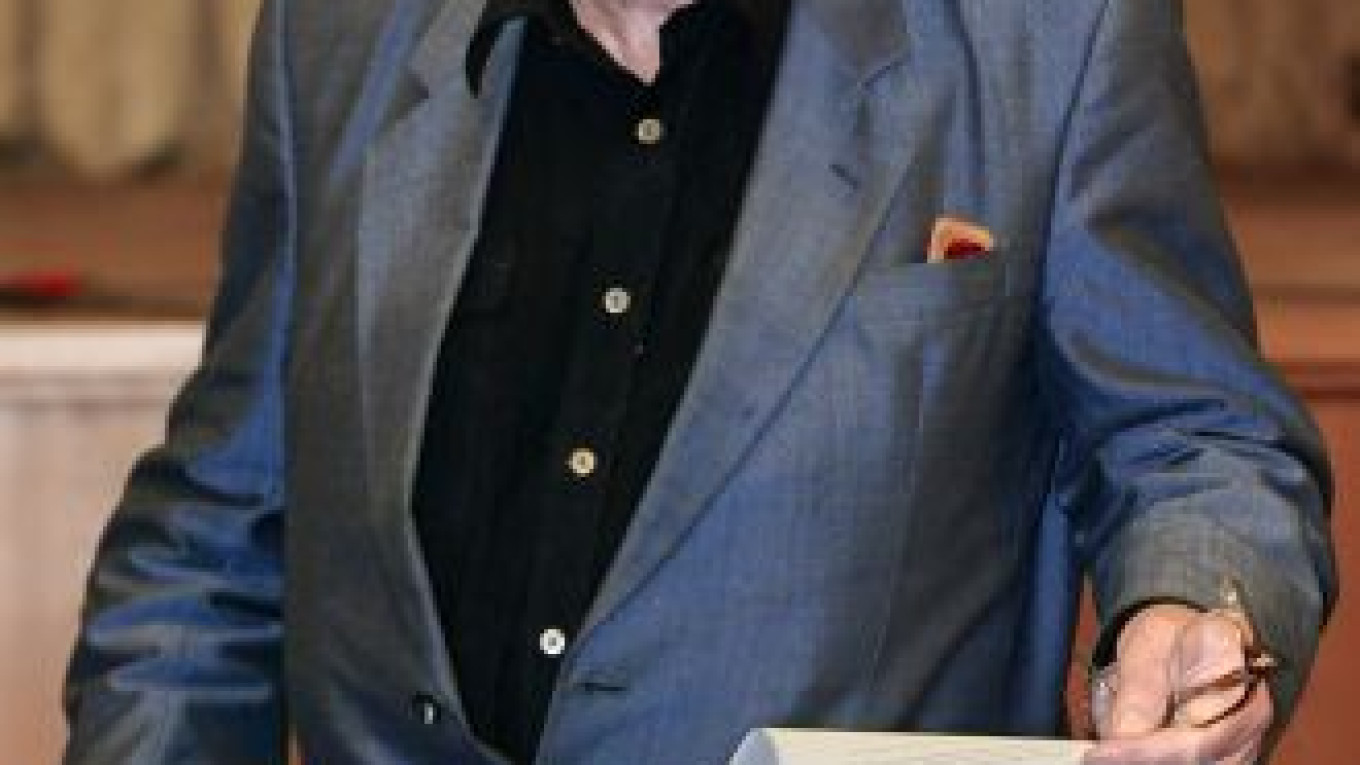Vitaly Ginzburg, a Nobel Prize-winning physicist and one of the fathers of the Soviet hydrogen bomb, has died in Moscow. He was 93.
Ginzburg died late Sunday of cardiac arrest, the Russian Academy of Sciences said Monday.
Ginzburg won the 2003 Nobel Prize in physics with two other scientists for their contribution to theories on superconductivity, the ability of some materials to conduct electricity without resistance.
In the early 1950s, Ginzburg worked on the government project that developed the Soviet hydrogen bomb, for which he won the Stalin prize and was showered with benefits and accolades.
In a career that spanned seven decades, Ginzburg authored several groundbreaking studies in various fields — such as quantum theory, astrophysics, radio-astronomy and diffusion of cosmic radiation in the Earth’s atmosphere — that were of “Nobel Prize caliber,” said Gennady Mesyats, director of the Lebedev Physics Institute in Moscow, where Ginzburg worked.
“I can hardly list all the fields of physics to which he contributed,” Mesyats said in televised comments Monday.
President Dmitry Medvedev praised Ginzburg as a “top physicist of our time whose discoveries had a huge impact on the development of national and world science” in a letter of condolences released by the Kremlin.
Ginzburg was born into a Jewish family in 1916, a year before the Bolshevik Revolution, and grew up in times of economic degradation and hunger, according to his autobiography written for the Nobel Prize Committee.
His career began in the late 1930s, a time of Stalinist purges and pervasive anti-Semitism. Ginzburg was blacklisted and faced persecution, but “was saved by the hydrogen bomb,” he wrote in the autobiography.
He became a member of the Soviet Academy of Sciences in 1953. He also was a longtime editor of a leading scientific magazine on theoretical physics and educated hundreds of disciples.
A vehement atheist, Ginzburg strongly opposed the growing role of the Russian Orthodox Church in state affairs after the 1991 Soviet collapse, protesting its attempts to have a say in political and secular matters and introduce religious lessons in schools.
“By teaching religion in schools, these Orthodox scoundrels want to lure away children’s souls,” he told a Russian newspaper in 2007.
Several Orthodox Christian groups threatened to sue him for “offending millions of Russian Christians.”
After receiving the Nobel prize, Ginzburg said he had given up hope of winning it after having been nominated regularly for the past 30 years. “I had long ago forgotten to think about this,” he said.
Despite his age, Ginzburg remained active as a scientist and public figure. He also was a staunch believer in the global triumph of democracy and “secular humanism” to help overcome such threats as Islamic terrorism, poverty and AIDS.
“I am still inclined to believe in the brilliant future of mankind,” he said in the autobiography.
Ginzburg will be buried Wednesday in the Novodevichye Cemetery in Moscow, the resting place of many of Russia’s most famous political, scientific and cultural figures.
A Message from The Moscow Times:
Dear readers,
We are facing unprecedented challenges. Russia's Prosecutor General's Office has designated The Moscow Times as an "undesirable" organization, criminalizing our work and putting our staff at risk of prosecution. This follows our earlier unjust labeling as a "foreign agent."
These actions are direct attempts to silence independent journalism in Russia. The authorities claim our work "discredits the decisions of the Russian leadership." We see things differently: we strive to provide accurate, unbiased reporting on Russia.
We, the journalists of The Moscow Times, refuse to be silenced. But to continue our work, we need your help.
Your support, no matter how small, makes a world of difference. If you can, please support us monthly starting from just $2. It's quick to set up, and every contribution makes a significant impact.
By supporting The Moscow Times, you're defending open, independent journalism in the face of repression. Thank you for standing with us.
Remind me later.


